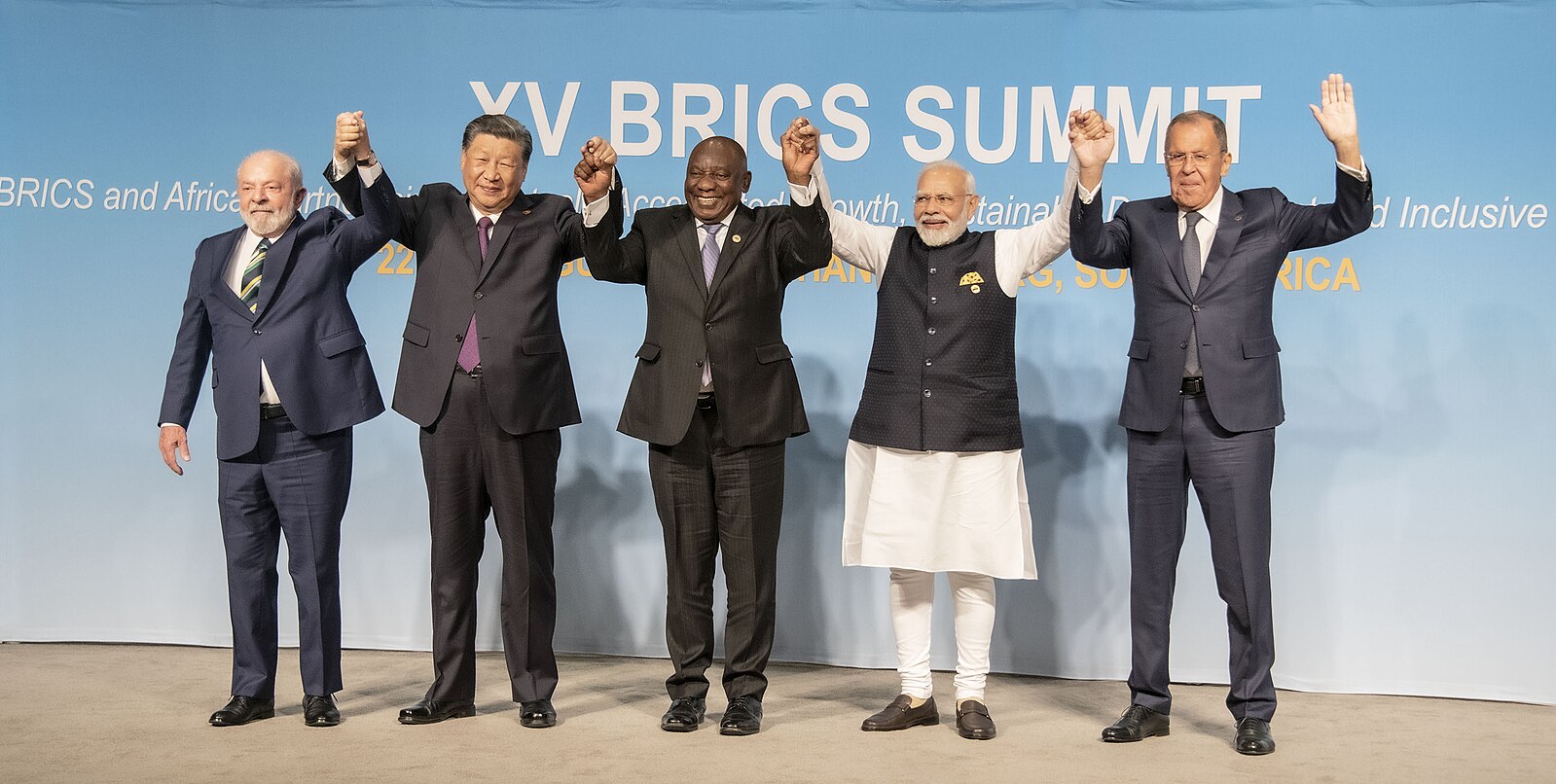BRICS, but now with EASEUI?

BRICS leaders and representatives standing side by side during the 2023 BRICS Summit
Jacob Sagers – The BRICS group, formerly composed of just Brazil, Russia, India, China, and South Africa, expanded for the first time since 2010 last week. Argentina, Iran, Saudi Arabia, Ethiopia, Egypt, and the U.A.E. are now expected to join in January 2024. The move, while largely symbolic, helps challenge the current global order. China and Russia are looking at ways to expand their influence, particularly in the Global South, at the expense of the West. The organization is an opportunity for them, and all its members, as it wants to become an alternative to Western organizations and paths for development. Support for the expansion signifies a shift in the countries’ geopolitical codes.
Geopolitical codes are the way a country positions itself through actions on the global stage. Actions include identifying allies and enemies, and then justifying actions to its citizens. China and Russia view the United States as a rival and use BRICS, its development bank, and policies to challenge American influence. The surprise addition of Iran, another American enemy, spearheads the BRICS group in opposition with NATO, the World Bank, and other Western organizations. The expansion reorganizes countries codes as BRICS has changed and must consider other countries priorities. Adding members also bolsters the means to challenge Western influence, with increased economic capital, and power. The move allows BRICS countries advantages in comparison to the West, with the aim to achieve their geopolitical codes.
The group, however, has different countries with different geopolitical codes. India and Brazil have held softer attitudes towards the United States and are seen as neutral within the competition between Washington and Beijing. Saudi Arabia’s uneasy relationship with the U.S., alongside Iran’s addition, heightens the group’s radar for American attention. The expansion and drive for influence may eventually force confrontations as state action always holds consequences. Furthermore, existing countries’ power will be reduced as it is shared, potentially backfiring on the expansion’s initial goal. The move may drive some countries further from BRICS, or further from the United States. Nevertheless, if BRICS expansion brings the benefits it is supposed to, it may force the West to adjust its perceived hegemony and help raise the Global South’s prominence.
Image Credit: Photo distributed under Creative Commons Public Domain. Source.
